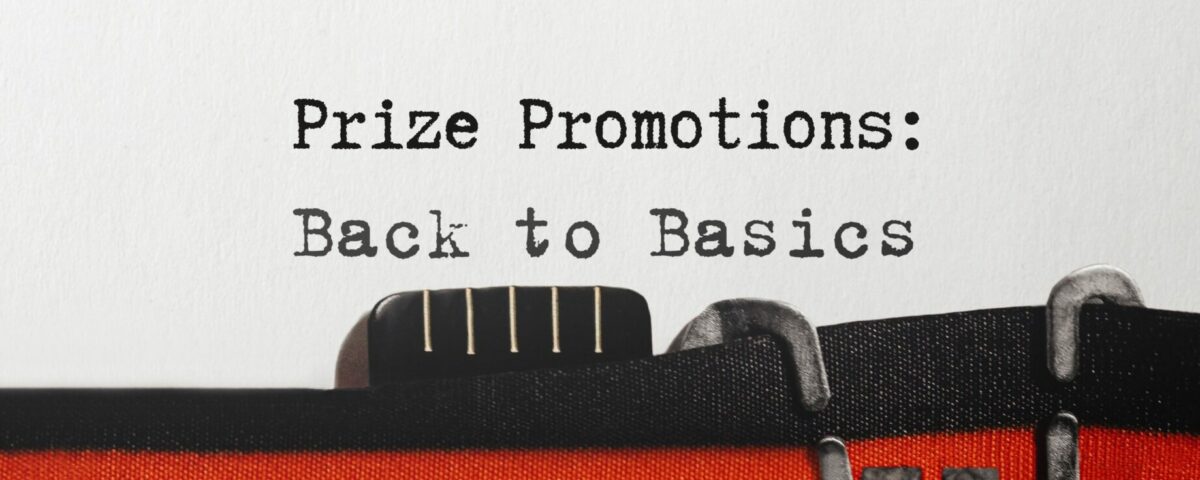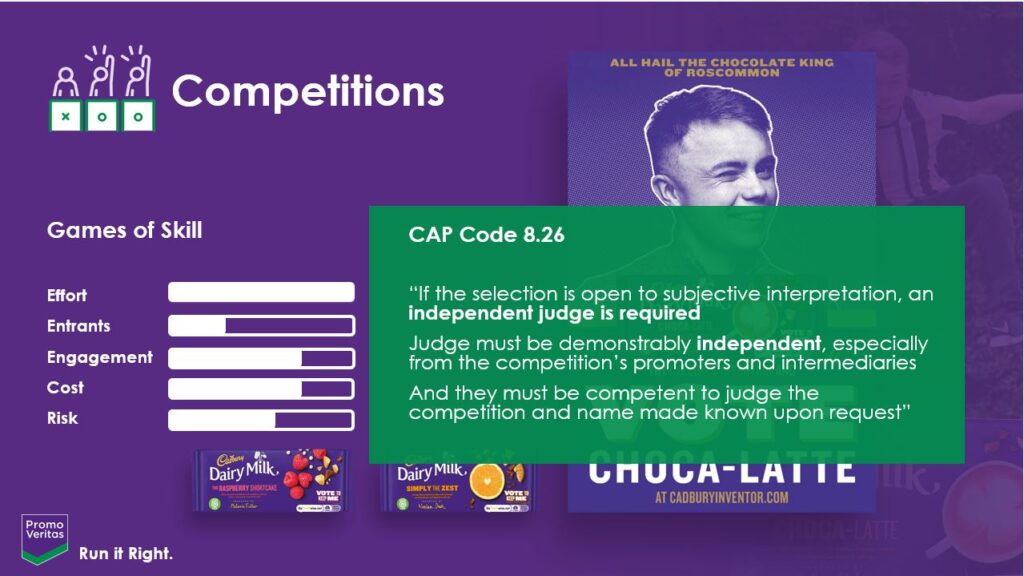Back 2 Basics: Games of Skill

Planning for Valentines with HFSS
25 January 2023
Crypto Promotions under the Microscope with new Legislation.
19 April 2023
In our latest Back to Basics, Senior Paralegal, Emily Vickers focuses on games of skill otherwise known as competitions.
But first, why Run a promotional activation?
Brands have different reasons for running promotions, to increase trial, repeat purchase, traffic, loyalty and awareness amongst others. They have a range of tools or techniques available to them, and it is important to ensure that they use the right tool in order to garner the required outcome.
Games of Skill
Games of skill involve a bit more work than a simple game of chance due to the requirement of an element of skill in the entry mechanic. If winner selection is based on true skill and NOT left to chance, then the promotion is a competition or game of skill.
Contrasting with the simple entry mechanic of a game of chance or prize draw, competitions, or games of skill, can include asking entrants to submit a photograph, or some wording which is then judged, entrants can be asked to play a video game or answer a challenging question as examples.
The Gambling Act 2005 defines the level of skill needed in order to combat “fake’ competitions. In a genuine competition, it must be such that it:
- ‘Prevents a significant proportion of people who wish to participate from doing so’
OR
- ‘Prevents a significant proportion of people who participate from receiving a prize’
If the winner selection mechanic meets either of these tests, then the promotion does not rely wholly on chance and will be a game of skill / competition.
Provided that there is a good level of skill involved, even if multiple people get the answer right, the law permits you to select the final winner in a random draw – but only if you had a “significant proportion’ of non-winners at the first stage. The Act doesn’t define what a significant proportion actually is, this is up to the courts to decide.
CAP Code Rule 8.26 talks about the independent aspect of the judge, namely that they must be demonstrably independent, especially from the competition’s promoters and intermediaries and from the pool of entrants from which the eventual winner is picked. Those appointed to act as judges should be competent to judge the competition and their full names must be made available on request.

Games of Skill overseas
As with games of chance, there are varying rules from country to country relating to running games of skill. What is accepted in one country, may not be in another even if the countries have similar rules and regulations in other aspects of their day to day running. Again this is a service PromoVeritas we can provide, conducting legal reviews in countries you are wanting to run promotions in to ensure compliance with all local rules and regulations.
There are many advantages of running games of skill;, they can create quick exposure for the brand, they can be run at a relatively low cost, creates more engagement with consumers, excitement for consumers can be increased by using exciting prizes. However, as always it is important that you run your promotions right, ensuring compliance, in order to avoid rulings by the ASA, which could damage your brands reputation.
How we can help you
We provide global legal concept advice to ensure that your game of skill promotion is fully compliant in the market you want to run it in. Furthermore we can draft the terms and conditions for the game of skill to ensure compliance with all the rules and regulations pertaining to your promotion.
From an implementation perspective we can create microsites where entrants will submit their details to enter your promotion, conduct the prize draw, fulfil the prizes and communicate with the winners. At the end of the promotion we will issue a Certificate of Verification to demonstrate the promotion’s compliance.
Not only can we help with the practicalities of carrying out the promotion, we will protect your reputation.
